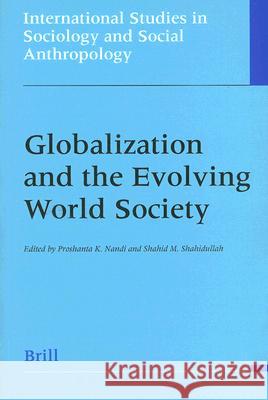Globalization and the Evolving World Society: » książka
Globalization and the Evolving World Society:
ISBN-13: 9789004112476 / Angielski / Miękka / 1998 / 193 str.
The societies of the present world are experiencing many turbulent changes. New forces of change and modernization are driving people, business and cultures across borders. The world has become a home to a new generation of homo sapiens who are curious about others but, at the same time, cherish to preserve their own cultures. What is the nature of this evolving world society? Is the world driving toward a new global civilization--an "end of history"-- or an inevitable civilizational clash? The present volume has brought together leading scholars in the field to examine the concept of globalization, deliberate on the character of its multifaceted nature and expressions, and delineate its impact on the emerging world economy, politics, culture, and science. A number of substantive issues such as the emergence of new global economic inequality, culture and the role of the trans-nationals, nature of the emerging global environmental regimes, rise of the NICs, and the conflicting role of the nation-states in the face of the advancing forces of globalization are addressed. It is contended that globalization should be perceived neither as an unbounded economic progress nor as an expansion of western domination. Globalization is, rather, defined as a new development strategy--a process of change that can be planned, guided, and controlled. For national political and business leaders of the world, the volume provides a blueprint of the emerging areas of policy concerns and guidance. For the world of social science, it presents a road-map of the emerging intellectual issues and challenges. Contributors are Alessandro Bonanno, Stephen W.K. Chiu, Douglas Constance, Richard J. Estes, R. Scott Frey, Archibald O. Haller, George A. Miller, Proshanta K. Nandi, Winifred R. Poster, J. Timmons Roberts, Shahid M. Shahidullah, Bam Dev Sharda, and Alvin Y. So.











